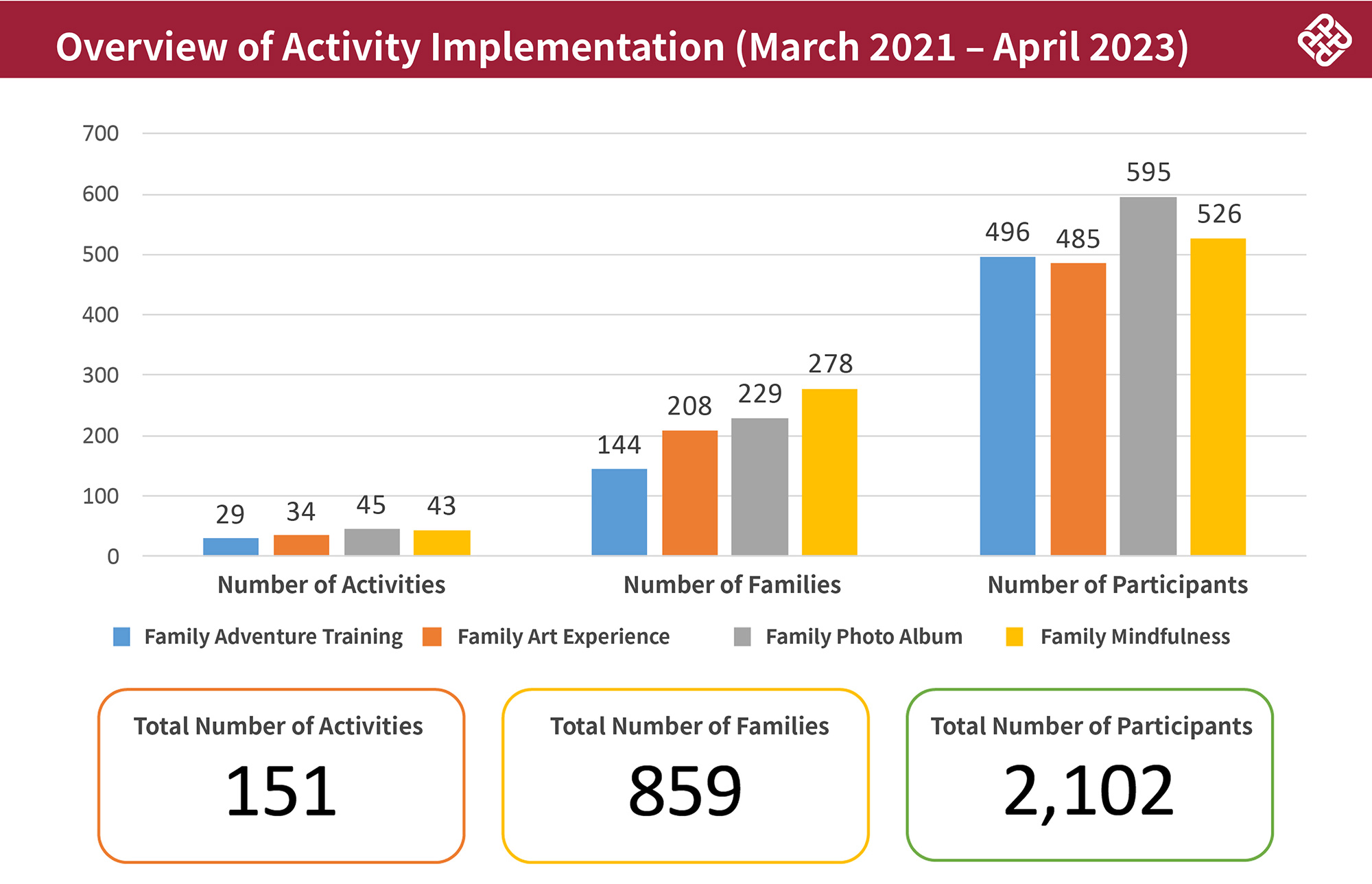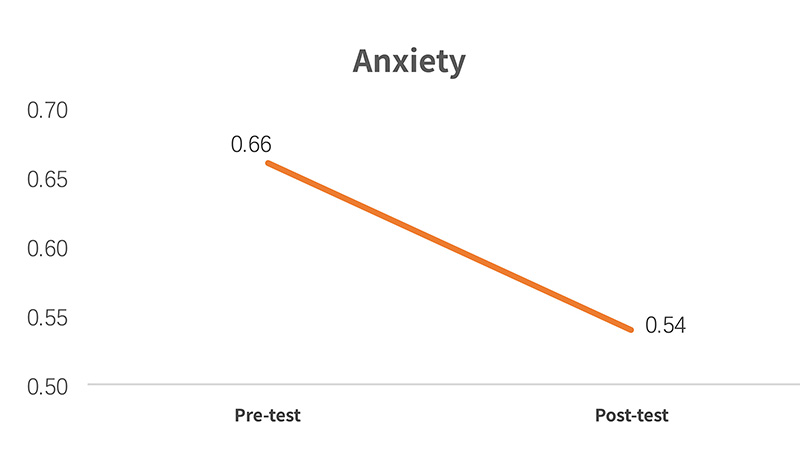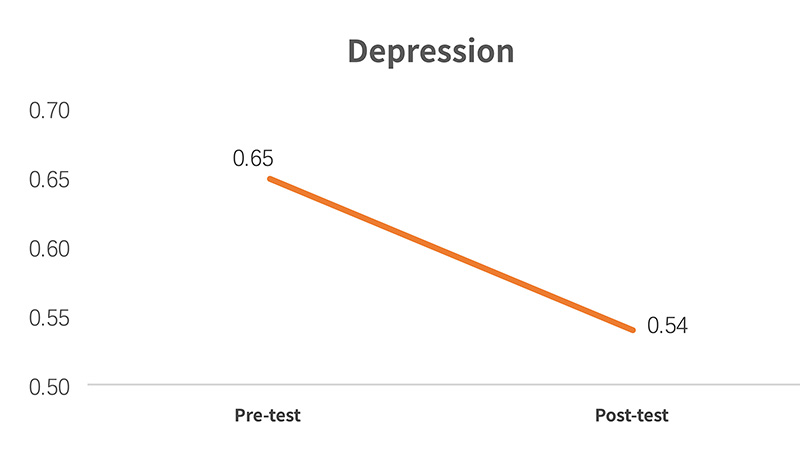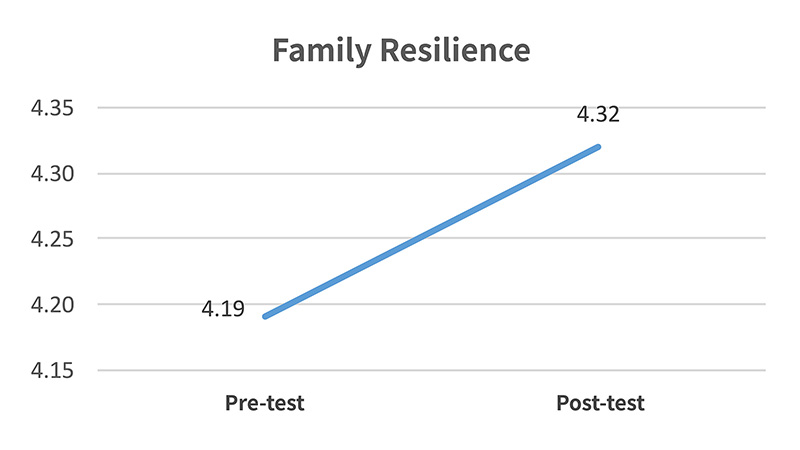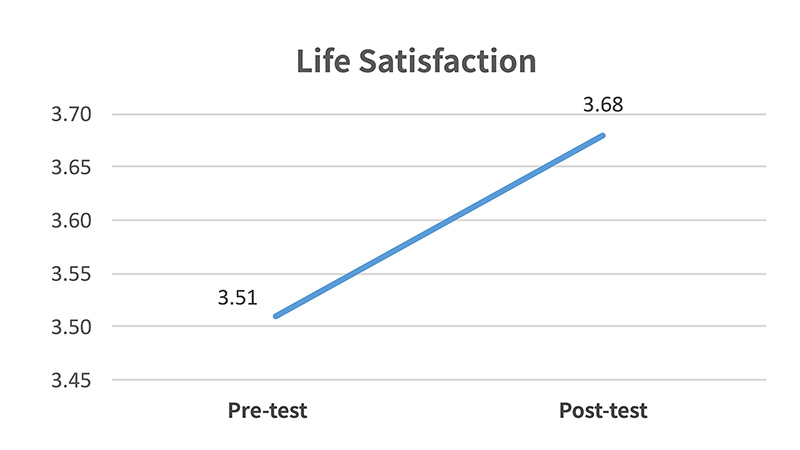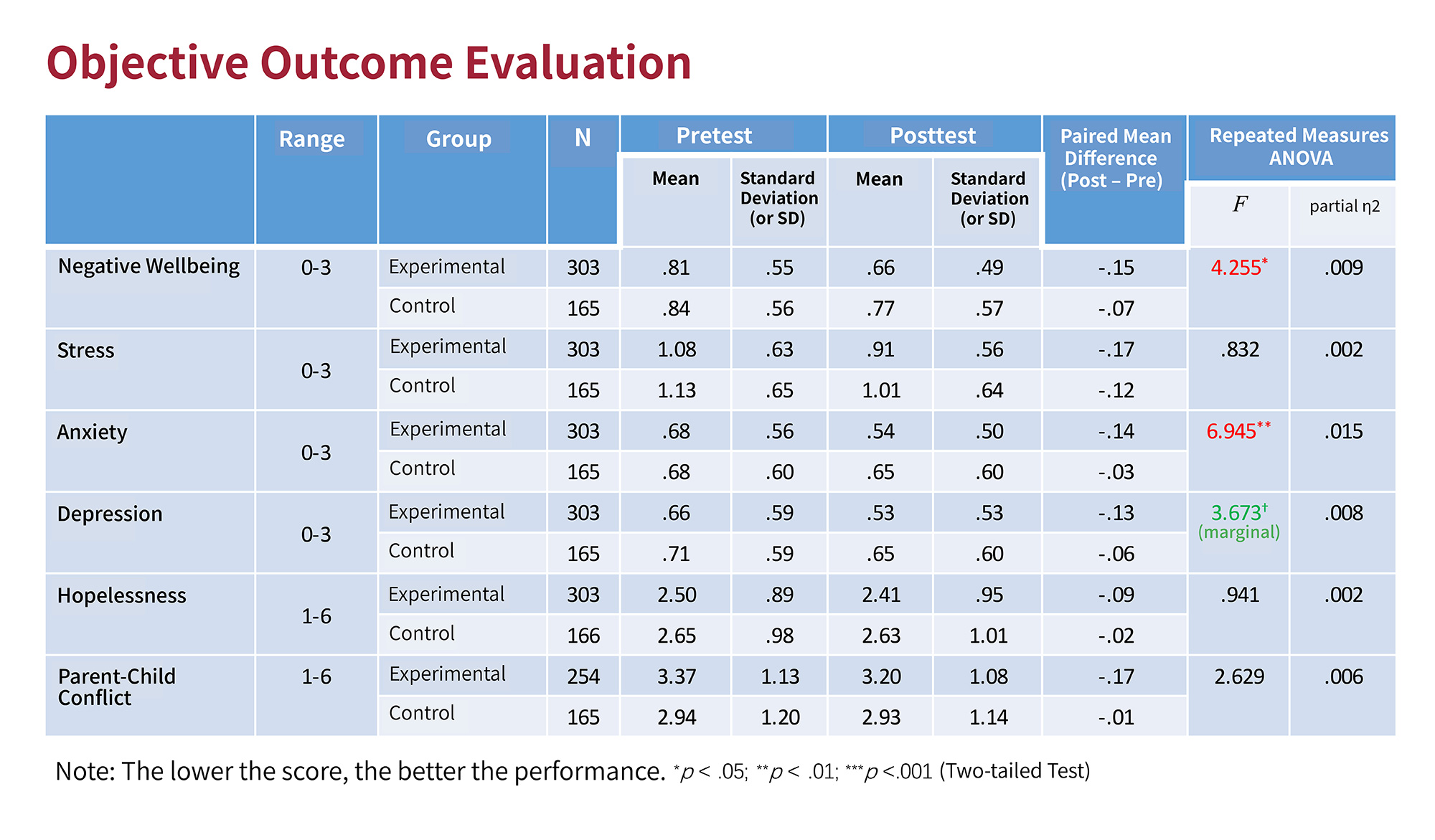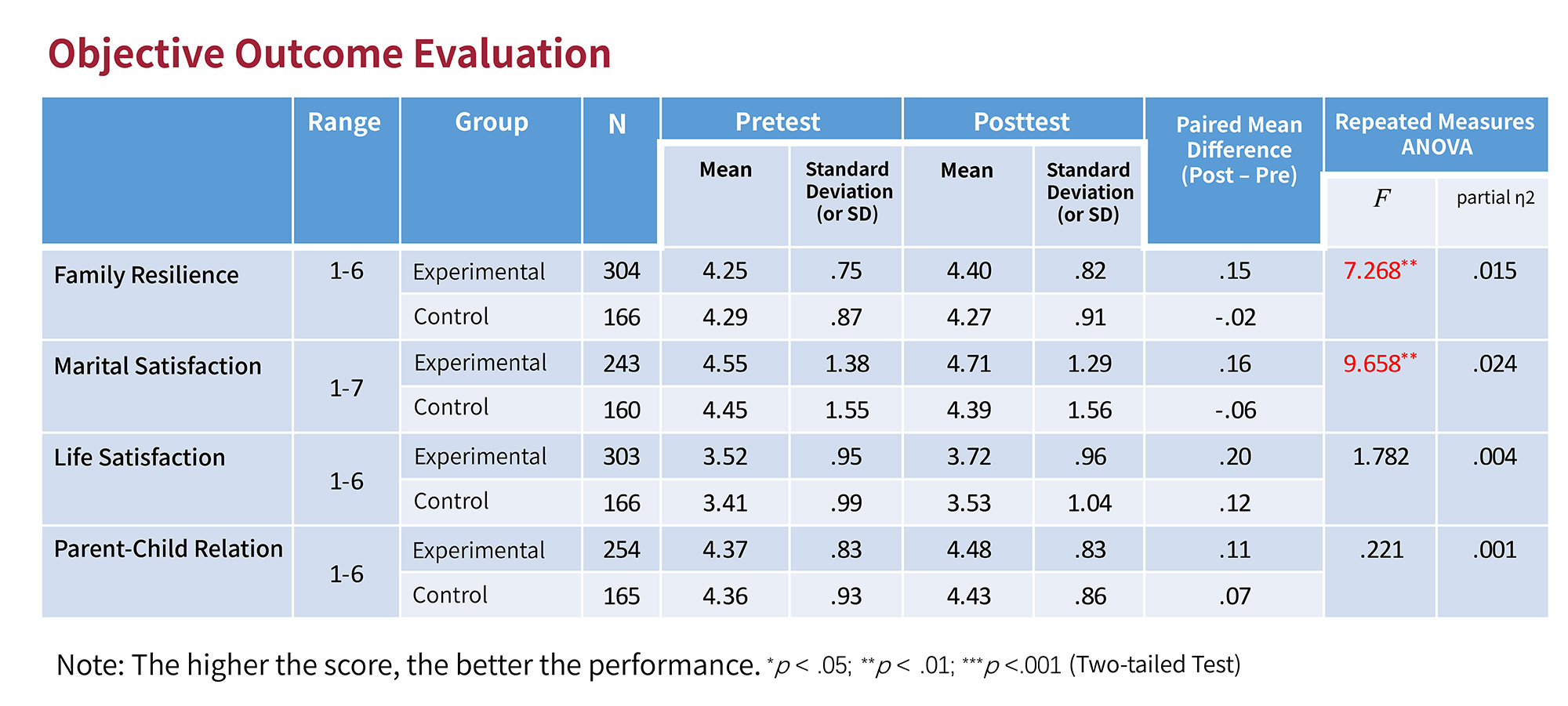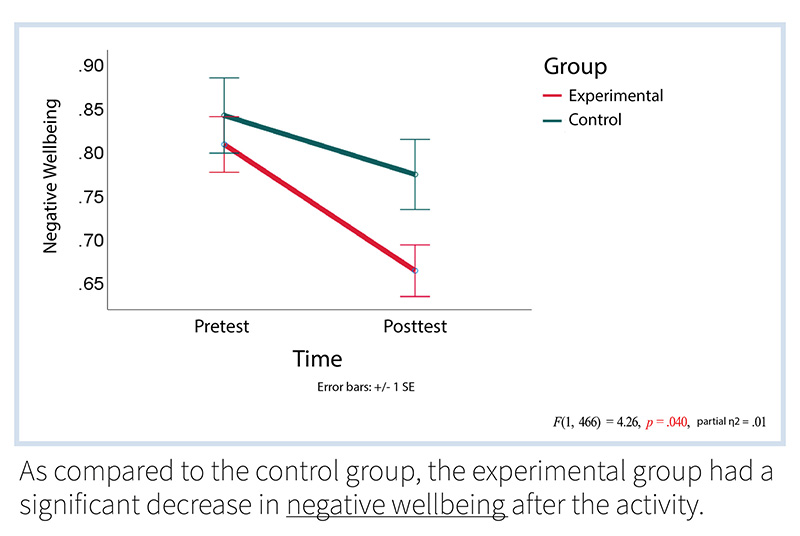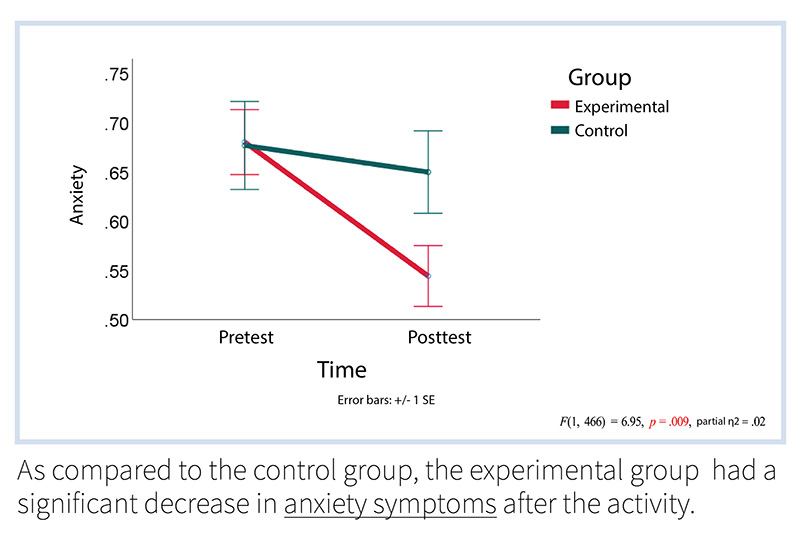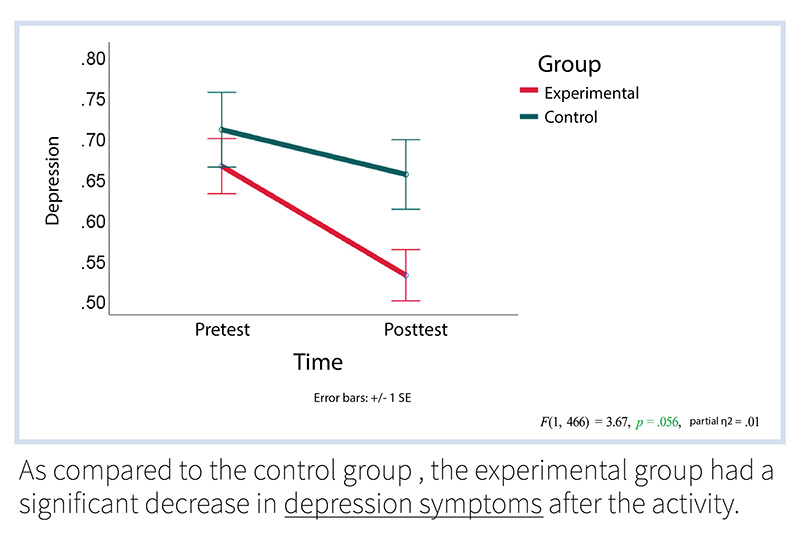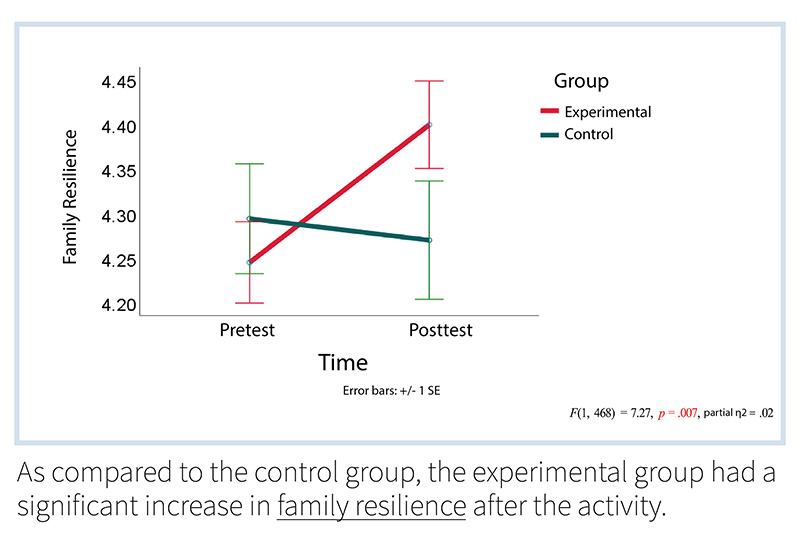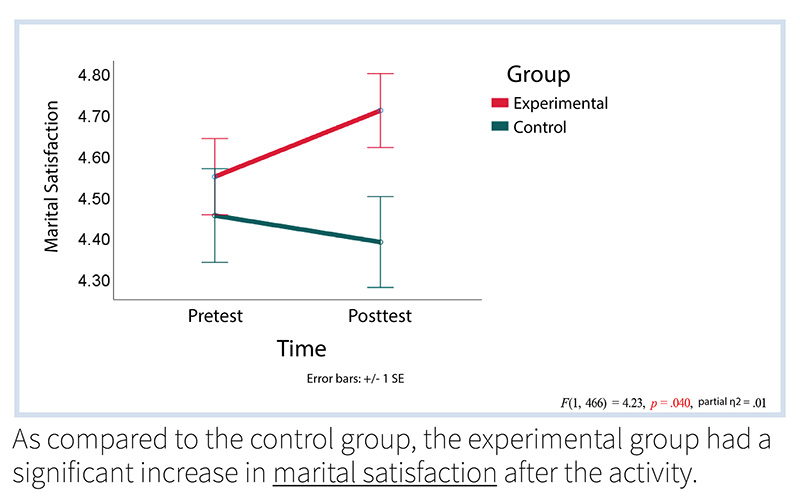Community-Based Professional Intervention Programs - Outcome Evaluation
Community-Based Professional Intervention Programs - Group Activities
As of April 2023, the four collaborating NGOs have organized a total of 151 family group activities. Each group activity is attended by both parents and their children, with a total of 2,100 participants from 860 families. The intervention methods included the "Family Adventure Training", "Family Art Experience", "Family Photo Album" and "Family Mindfulness". The Project Research has utilized different methods to evaluate the program effectiveness.
The subjective outcome evaluation showed that group activities benefited the participants in several aspects: gains in knowledge, attitude, behavior, and condition. For example, 96% of the participants agreed that the program helped them to understand how to coordinate with each other in the family and face adversity together. It also made them believed that family members could support each other to overcome difficulties. In terms of attitude changes, most participants expressed that the programs enhanced their confidence to face adversity and reduced their sense of helplessness caused by adversity. In terms of behavioural changes, the programs strengthened the mutual support and positive communication among family members.
One-group pretest-posttest evaluation showed that after completing the program, participants experienced a significant decrease in overall negative emotions (stress, anxiety, and depression), with a significant increase in their level of Family Resilience and life satisfaction.
Single group pre- and post-test analysis
Note: p < 0.001 (Two-tailed Test)
The results of quasi-experimental analysis (304 participants in the experimental group and 166 in the control group) showed that the overall negative emotions, anxiety, and depression of the participants in the experimental group significantly reduced, as compared with those in the control group. In contrast, their level of Family Resilience and marital satisfaction increased significantly. Different evaluation methods showed that our intervention programs were effective in improving the mental health of families and providing them with protective factors against family adversities.
The experimental group refers to families that participated in the programs.
Community-Based Professional Intervention – Piecemeal Programs
| Knowledge Effectiveness 1: concept of Family Resilience | Average score | Percentage of positive comment |
|---|---|---|
| Knowledge Effectiveness 2: discovery of family merits and drawbacks | 5.07 | 95% |
| Knowledge Effectiveness 2: discovery of family merits and drawbacks | 5.05 | 95% |
| Attitude Effectiveness (e.g.: participants have more positive belief toward family) | 5.09 | 96% |
| Effectiveness in state | 5.00 | 95% |
| Effectiveness in behaviour | 5.07 | 96% |
| Comments on staff | 5.38 | 98% |
| Comments on activities | 5.33 | 98% |
| Satisfaction on activities | 5.38 | 98% |





